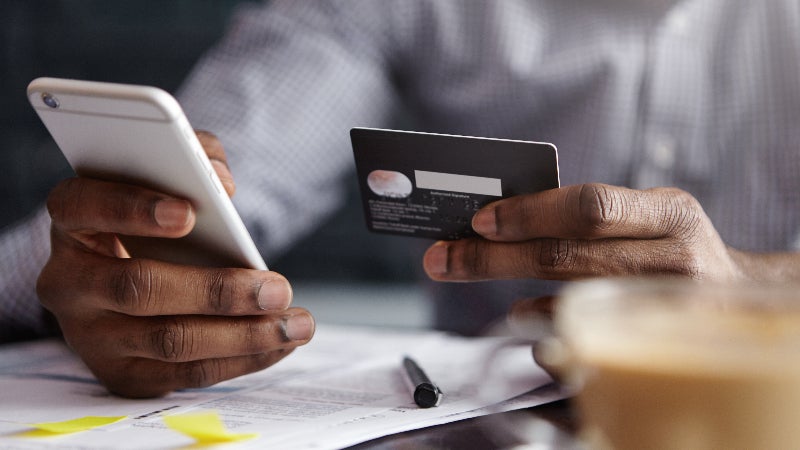WAYHOME studio/Shutterstock
Key takeaways
- Metal credit cards, which are more durable compared to plastic cards, require different disposal methods.
- Some options for destroying metal credit cards include mailing them back to the issuing bank, returning them to a branch, keeping them in a safe place or destroying them yourself.
- It is not recommended to trust third-party services to destroy metal credit cards as they may be scams.
Traditionally, destroying a credit card you no longer use was as easy as reaching for a pair of scissors or getting some extra use out of that handy home shredder.
As more issuers are switching to sturdier metal credit cards — and this trend doesn’t seem to be going anywhere — safely getting rid of old cards is a little more complicated.
When your metal card expires or otherwise becomes unusable, scissors, box cutters and even paper shredders are no longer enough to get the job done. So, what’s the best way to destroy a metal card? Read on to discover a few options for nixing your metal card.
Mail it back to your issuer
Sending your expired or otherwise compromised metal credit card back to your issuer is often the best way to ensure that it will be properly destroyed.
If you receive a new card, your issuer may include an envelope with prepaid postage for you to return your old card safely.
According to a representative from Chase, which offers both the Chase Sapphire Reserve® and Chase Sapphire Preferred® Card in metal form, Chase cardmembers also receive a prepaid envelope at account opening to mail cards back for proper disposal in the future.
If you don’t receive a prepaid envelope with your newly-issued card or you lose track of the one included with your old card, simply call the phone number on the back of your card to request one or ask for further assistance in disposing of your card.
Return it to a bank branch
If you’d rather deal with the hand-off in person, you can also walk into one of your issuing bank’s brick-and-mortar locations to return a metal card. While each issuer may have a different policy, speaking to a representative at a physical branch of your bank can help you determine the best course of action.
Stow it away
If you want to dispose of your card solely to keep yourself from taking on a higher balance, you may be best off simply stowing it away in a drawer or putting it in your safe. If you do decide to stash your old card away at home, make sure that you keep it in a safe, relatively inaccessible place where your information’s security won’t be compromised.
Keeping your card safely out of sight can be a good solution for avoiding temptation if you don’t want to risk (temporarily) hurting your credit score by closing the account. It also allows you to maintain access to the card in case of an emergency.
Destroy it yourself
If you know you won’t need the card again, you can also dispose of it by destroying it yourself. But repeat after me: don’t use the home shredder collecting dust in the corner of your home office.
While regular kitchen scissors aren’t likely to do much damage against a metal credit card, you should easily be able to cut it into pieces with tin snips. Tin snips are shears used to cut sheet metal and other rigid materials, and they should do the trick with any metal card you have lying around. If you want a quick solution and you happen to have these handy, this is an easy DIY disposal method.
If you don’t have tin snips at hand, there are plenty of tales across the web of creative ways cardholders have tried to destroy their metal credit cards, from blowtorches to fire pits and pliers.
Most of these methods aren’t the most practical way to destroy your card, but they can be a fun experiment as long as you remember to keep the metal away from the microwave and your home shredder. According to Chase, all its metal cards even have a note on the back indicating not to shred it.
Don’t trust a third-party service
If you come across a third-party service offering to destroy your metal credit card for you, it’s most likely a scam. To prevent your credit card information from falling into the wrong hands, you shouldn’t hand over your metal credit card to anyone other than an employee at your bank.
Even if your credit card is expired or canceled, you should not give your credit card number to any third parties, especially in unsolicited email messages or by entering it on an unfamiliar website. You should also safely file or shred any documentation that has your credit card number on it, such as canceled checks or financial statements, and make sure the number is entirely unrecognizable
The bottom line
A credit card made from metal may be a bit more complicated to destroy than plastic, but it’s not impossible. In most cases, the safest and most convenient solution is to contact your credit card issuer to ask for their recommendation for properly disposing of your metal credit card. Call the phone number on the back of your card to request a prepaid envelope for return and disposal or ask about your issuer’s preferred method.
And remember, even if you dispose of the card itself, don’t throw your points or cash back earnings away. Check your accounts to ensure that you don’t have any lingering rewards waiting to be used before they expire or are forfeited upon account closing.
Read the full article here














